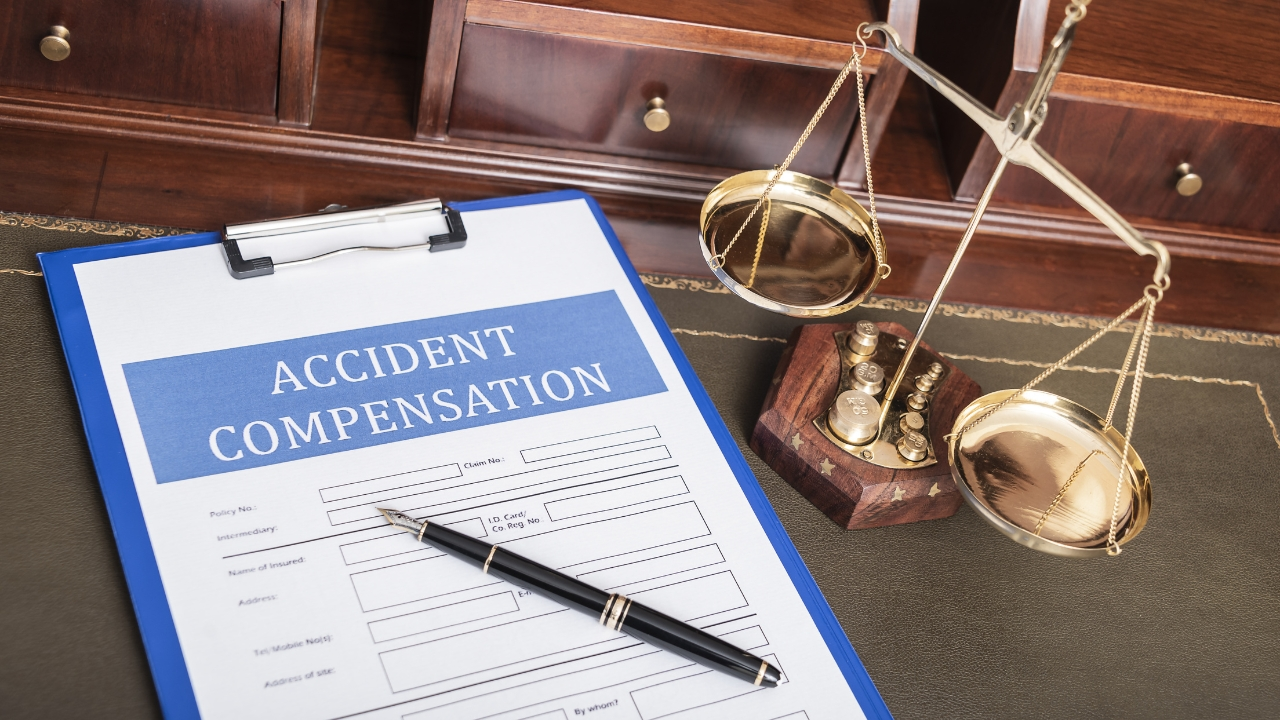Can accident reimbursement be claimed? After a car accident, many drivers wonder if they can receive reimbursement for damages, medical bills, or even lost wages. The good news is, in many cases, yes, you can. But the process isn’t always straightforward. Understanding the details of accident reimbursement claims such as the types of coverage you have and how to navigate the claims process is crucial to ensuring you get the compensation you deserve. In this article, we’ll break down 5 key facts about claiming accident reimbursement and what you need to know before filing a claim. Let’s dive in!
Key Takeaways
- Accident reimbursement is possible, but it depends on your insurance coverage. Key types like collision, comprehensive, and liability coverage determine what can be reimbursed, including car repairs, medical expenses, and more. Understanding these coverages is essential to filing a successful claim.
- If the accident wasn’t your fault, you can keep the reimbursement. However, if the accident was your fault, you may not be able to recover all costs. Additionally, certain insurance policies may not fully cover damages or injuries, and a deductible could still apply.
- The payout for your car after an accident is influenced by factors such as market value, depreciation, and whether the vehicle is repairable. Be mindful of your deductible, as it can reduce the amount you receive from your insurance for repairs or replacement.
- While you can claim for physical injuries, anxiety and emotional distress are also eligible for reimbursement in some cases, especially under Personal Injury Protection (PIP). However, documenting and proving mental health claims can be challenging, requiring thorough medical assessments.
- To successfully claim reimbursement, you must follow a step-by-step process that includes filing a claim, providing documentation, and understanding the limits of your policy. Avoid common mistakes, like failing to report the accident on time or miscommunicating the details of the accident.
Table of Contents
Understanding Accident Reimbursement
Can accident reimbursement be claimed? This is a common question after a vehicle incident. Accident reimbursement refers to the process of claiming compensation through your car insurance to cover damages or losses incurred during a vehicle accident. Whether it’s damage to your vehicle, medical bills, or other expenses, understanding how to navigate the claims process can help ensure you get the reimbursement you’re entitled to. Let’s explore the key aspects of accident reimbursement and what you need to know about the types of damages that may qualify.
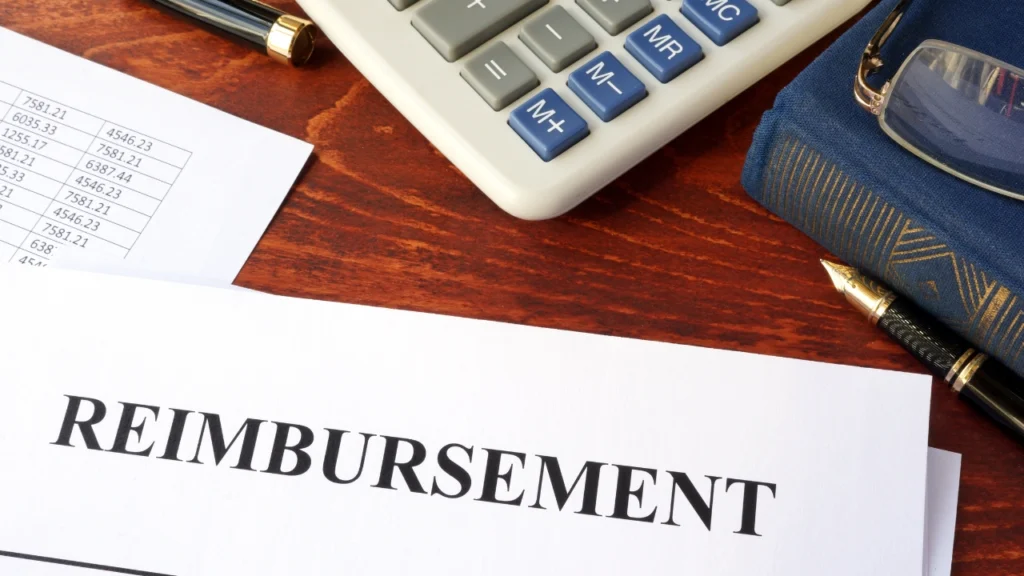
What is Accident Reimbursement?
Accident reimbursement is a claim you file with your insurance company after an accident to recover costs associated with damages. This typically includes repairs to your vehicle, medical treatment for injuries, lost wages, and sometimes emotional distress caused by the accident.
Can you keep money from a car accident claim? depends on factors like fault and coverage. Reimbursement is primarily driven by the type of coverage you have under your insurance policy. Common types of coverage include:
- Collision Coverage: Pays for vehicle repairs or replacement after a collision, regardless of who is at fault.
- Comprehensive Coverage: Covers damages from non-collision events like theft, vandalism, or natural disasters.
- Liability Coverage: Covers damage to other people’s property or injuries you cause.
- Personal Injury Protection (PIP): Covers medical expenses and other costs, regardless of who is at fault.
The Importance of Knowing Your Coverage
Understanding your insurance coverage is crucial when it comes to claiming accident reimbursement. For instance, How much will I get for my car after an accident? hinges on your policy’s terms and the vehicle’s market value. Without a clear understanding, you may not realize what expenses are covered or how to navigate the claims process effectively. Here’s why it’s important to know your coverage:
- Accurate Claims: Knowing your coverage helps you file accurate claims and avoid unnecessary confusion or delays.
- Maximizing Benefits: By understanding the specifics of your policy (e.g., collision vs. comprehensive), you can ensure you are not missing out on claims you are eligible for.
- Reducing Stress: In the event of an accident, you’ll be less stressed if you already know what your insurance covers and what to expect.
It’s also important to differentiate between the types of coverage available:
- Collision: Only covers damages to your car from collisions.
- Comprehensive: Offers protection against non-collision events.
- Liability: Helps you when you are at fault in an accident.
- PIP: Covers medical expenses, sometimes including lost wages and emotional distress.
Understanding these differences ensures that you are prepared to file the right claims and maximize the reimbursement you can receive.
Can You Keep Money From a Car Accident Claim?
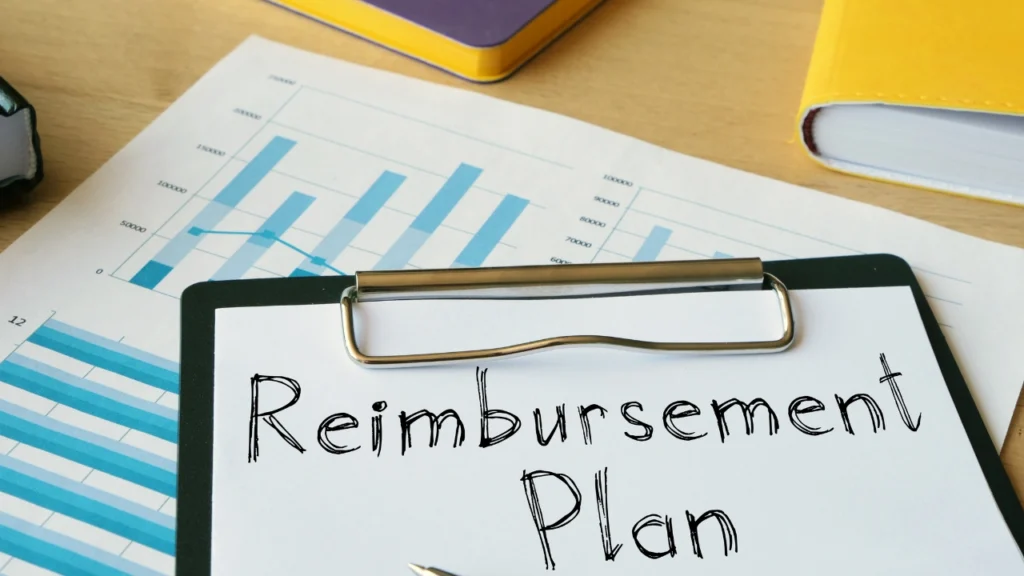
When You Can Keep the Money
In most cases, you can keep the money from a car accident claim, especially if the accident was not your fault. Here’s how it works:
- Personal Injury and Property Damage Reimbursement: When you file a claim with your insurance, depending on your coverage, you can receive money to cover your medical expenses, vehicle repairs, or even replacement costs. If the accident wasn’t your fault, this reimbursement typically goes to you, the policyholder, for your own expenses and damage repairs.
- Payout in the Event of Fault: If the accident was caused by someone else, their insurance (or your uninsured/underinsured motorist coverage) may reimburse you for your car repairs, medical costs, and more.
In these cases, the money you receive is meant to cover the actual expenses, and in general, you can keep it without obligation. However, if you are reimbursed through your own insurance (like comprehensive or collision coverage), your insurer may later seek reimbursement from the other party’s insurance company if they were at fault.
Limitations and Conditions
While it’s often the case that you can keep the money from a car accident claim, there are some limitations and conditions to be aware of:
- Insurance Deductibles: The amount of reimbursement you receive might be reduced by your deductible, which you must pay out of pocket before insurance kicks in. For example, if your deductible is $500 and the repair costs are $2,000, you would only receive $1,500 from your insurance.
- Partial Fault or Mixed Fault: If you are partially at fault for the accident, your reimbursement may be reduced according to your percentage of fault. In some cases, if you’re found to be more than 50% at fault, you might not receive any reimbursement at all from the other driver’s insurance.
- Denial or Underpayment of Claims: Insurance companies can sometimes deny or underpay claims. This may happen if:
- Lack of sufficient evidence (such as photos or a police report)
- Inadequate documentation (like missing medical bills or repair estimates)
- Policy exclusions (e.g., if the accident is not covered by your specific policy)
If your insurer denies the claim or offers a lower payout than expected, you have the right to appeal or negotiate for a higher amount.
How Much Will You Get for Your Car After an Accident?
After an accident, the amount you’ll receive for your car depends on several factors. The value of the reimbursement largely relies on the extent of the damage to your vehicle and the type of coverage you have. Here’s what you need to know to understand how much you could get for your car after an accident.
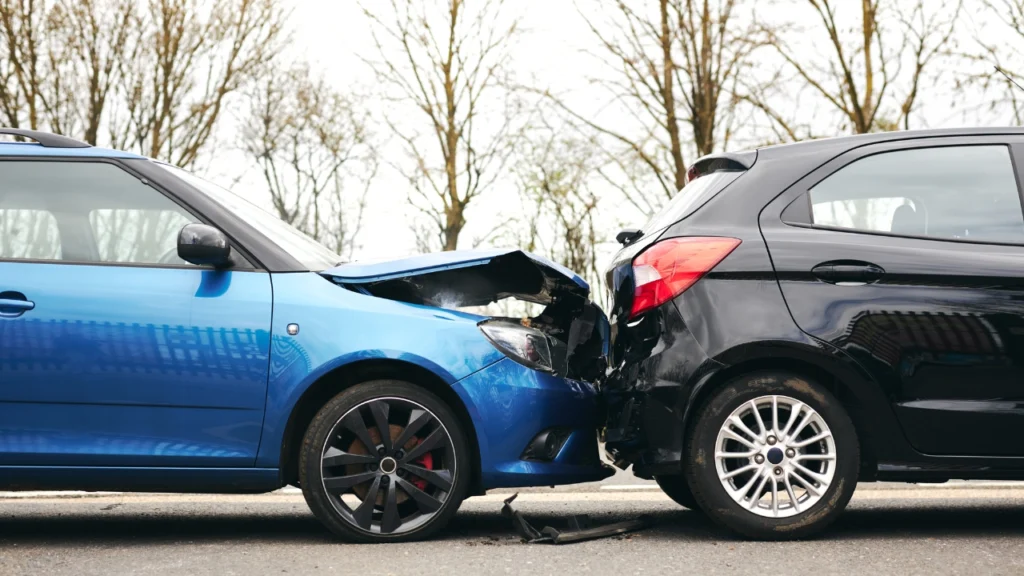
Payouts Based on Vehicle Damage
When your car is involved in an accident, the first step is to assess the damage. Insurance companies will evaluate this damage to determine how much compensation you will receive. This process typically involves:
- Market Value: Your insurer will determine the current market value of your car. This includes its age, mileage, and condition before the accident. If your car is relatively new, you may receive a higher payout compared to an older vehicle.
- Depreciation: The value of your car naturally decreases over time due to depreciation. Insurers factor in depreciation when calculating payouts. This means if your car is older, the amount you’ll receive after an accident might be lower than the cost to replace it.
- Repairable vs. Total Loss: If the damage to your car is significant but repairable, the insurance company will likely pay for repairs. However, if the cost to repair the vehicle exceeds its current value (or a certain threshold), the car may be considered a “total loss.” In this case, the insurer will provide the actual cash value (ACV) of the car, which is the market value minus depreciation.
The Role of Deductibles
Your deductible plays a key role in how much reimbursement you will receive after an accident. A deductible is the amount you must pay out-of-pocket before your insurance kicks in. Here’s how it works:
- Impact of Deductibles: If you have a deductible of $500 and your vehicle repair costs are $2,000, you’ll pay the $500 deductible, and your insurance will cover the remaining $1,500. The higher your deductible, the lower your monthly premiums, but it means you’ll pay more out-of-pocket when you file a claim.
- Total Loss vs. Repairs: In the case of a total loss, the deductible will still apply. For example, if your car is valued at $10,000 before depreciation and your deductible is $500, the insurer will subtract the deductible from the total payout, leaving you with $9,500.
- Why Some Repairs May Cost More Out of Pocket: Even with reimbursement, some repairs may cost you more than expected due to your deductible, the type of damage, or the repair shop’s pricing. Additionally, if you choose to use a non-approved repair shop or your insurer’s suggested service, it might affect the total reimbursement amount.
Can You Claim for Anxiety After a Car Accident?
Can I claim for anxiety after a car accident? Experiencing emotional distress or anxiety after a car accident is common, and the good news is that in many cases, you can claim for it through your insurance policy. While physical injuries are often the focus in accident claims, psychological injuries like anxiety or post-traumatic stress disorder (PTSD) can also be covered, especially under Personal Injury Protection (PIP) or other medical claims.
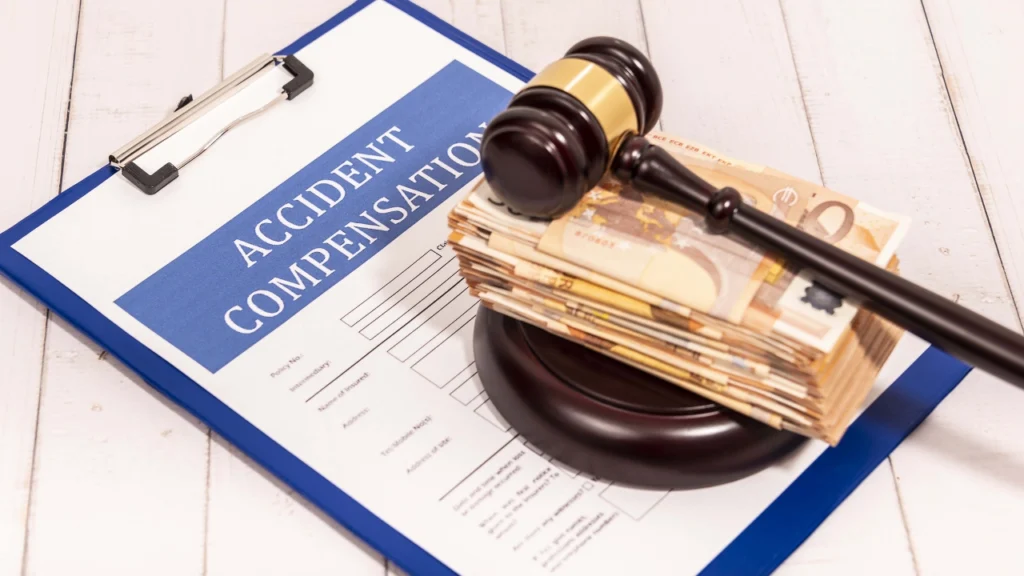
Medical and Psychological Claims
Anxiety and psychological trauma can absolutely be included in accident claims, but the process is more complex than for physical injuries. Here’s what you need to know:
- Personal Injury Protection (PIP): In some states, PIP provides coverage for both physical and psychological injuries, including anxiety and emotional distress. It helps cover medical expenses related to your recovery, including therapy sessions for mental health conditions that arise after the accident.
- Psychological Trauma in Claims: Emotional distress such as anxiety, depression, or PTSD can be linked to the trauma of the accident. However, insurers may require clear documentation and evidence of the psychological impact before reimbursement is approved. This means you will need professional evaluations and medical records to prove the connection between the accident and your anxiety.
Supporting Your Claim for Anxiety
If you intend to claim for anxiety or psychological trauma after an accident, it’s important to document everything properly. Here’s how you can strengthen your case:
- Documenting Psychological Injuries: Keep a detailed record of your symptoms, including how your anxiety has affected your daily life. This may involve noting instances of anxiety attacks, insomnia, or avoidance behaviors related to the accident. You should also seek out a mental health professional, such as a therapist or psychologist, who can provide a formal diagnosis and treatment plan.
- Medical Assessments: Since psychological injuries are often subjective, thorough documentation is crucial. This includes therapy sessions, prescriptions, and statements from mental health professionals confirming the emotional toll the accident has had on you. The more medical assessments and evidence you gather, the stronger your claim will be.
Can You Get Reimbursed From Car Insurance?
Can I get reimbursed from car insurance? Car insurance reimbursement is possible after an accident, but the process varies depending on the type of claim and your coverage. You can typically get reimbursed for expenses like car repairs, medical bills, and even lost wages, depending on the details of your insurance policy. Let’s explore the main types of claims you can make and how the reimbursement process works.
Types of Reimbursable Claims in Car Insurance
When you file a claim, it’s essential to know what types of expenses your car insurance can reimburse. Here are the key areas that can typically be covered:
- Car Repairs: If your vehicle is damaged in an accident, your insurance can help pay for repairs, depending on the coverage you have. Collision coverage handles damage to your car, while comprehensive coverage will cover non-collision incidents (like theft or hail damage).
- Medical Expenses: If you or your passengers are injured in an accident, your Personal Injury Protection (PIP) or medical payments coverage will reimburse medical costs. PIP covers a wide range of medical expenses, including hospital bills, doctor visits, and sometimes even rehabilitation services.
- Lost Wages: If your injuries prevent you from working, PIP may also cover a portion of your lost wages, based on the limits of your policy. This helps replace income lost due to your inability to work while recovering from the accident.
- Pain and Suffering: In some cases, especially in fault-based insurance systems, you may be reimbursed for pain and suffering through bodily injury liability coverage. This covers emotional and physical distress resulting from an accident, though the process can be more complex and typically requires proving the severity of your injuries.
Each of these claims will be handled differently depending on your policy and the insurance company’s assessment. It’s essential to understand which coverages are included in your policy to know what expenses can be reimbursed.
Insurance Process for Claiming Reimbursement
Filing a claim and receiving reimbursement can be a straightforward process if you follow the right steps. Here’s a quick guide to help you navigate the process:
- Step 1: Report the Accident Immediately
After the accident, report it to your insurance company as soon as possible. Many insurers allow claims to be filed via their app, website, or over the phone. The sooner you report the accident, the sooner you can begin the claims process. - Step 2: Provide Documentation
The more detailed your documentation, the smoother your claim will go. This includes police reports, photos of the damage, medical bills, witness statements, and repair estimates. Be sure to keep all records related to the accident, including receipts for medical treatments or repairs. - Step 3: Insurance Assessment
An insurance adjuster will typically assess the damage to your car and any medical records related to the accident. They will evaluate how much damage occurred and determine if the vehicle is repairable or if it’s considered a total loss. - Step 4: Claim Settlement
After the assessment, the insurance company will offer a settlement. If repairs are covered, the insurer may pay the repair shop directly or reimburse you for the costs you’ve already paid. If the vehicle is totaled, you will receive compensation based on the car’s actual cash value (ACV), minus any deductible.
Common Mistakes to Avoid During the Claims Process
- Not Reporting the Accident Quickly: Failing to report the accident within the required time frame can lead to delays or even denials of your claim.
- Incomplete Documentation: Missing vital documents, such as the police report or repair estimates, can delay the claim process or result in a lower payout.
- Misunderstanding Coverage Limits: It’s important to be clear on your coverage limits and exclusions. Sometimes, policyholders expect reimbursement for certain expenses that aren’t covered.
Conclusion
Accident reimbursement can indeed be claimed, but it’s important to understand the details of your insurance coverage to ensure you receive what you’re entitled to. Whether it’s vehicle repairs, medical costs, or even psychological distress, knowing your rights and coverage options is key. Remember to file your claim promptly and accurately to avoid potential issues. If you’re unsure about the process, don’t hesitate to contact your insurer or a legal professional for guidance. Take charge of your claim today and get the reimbursement you deserve!
Can accident reimbursement be claimed?
Yes, accident reimbursement can be claimed through your car insurance, depending on the type of coverage you have. Collision, comprehensive, and liability coverage are the primary coverages that determine what can be reimbursed, including repairs, medical expenses, and even lost wages in some cases.
Can you keep money from a car accident claim?
Yes, you can keep the money from a car accident claim if the accident was not your fault. However, if you were at fault, the reimbursement may be limited, and certain policies may not fully cover the damages or injuries, especially if there are deductibles involved.
How much will I get for my car after an accident?
The amount you will get for your car after an accident depends on factors such as the vehicle’s market value, depreciation, and whether the car can be repaired or is considered a total loss. Insurance will cover repair costs or provide compensation for the car’s actual cash value, minus your deductible.
Can I claim for anxiety after a car accident?
Yes, you can claim for anxiety or psychological distress after a car accident, but it may require strong documentation. Personal Injury Protection (PIP) may cover medical costs related to anxiety or stress, but proving psychological injuries can be challenging and typically requires medical assessments.
Can I get reimbursed from car insurance?
Yes, car insurance can reimburse you for various costs, including vehicle repairs, medical bills, lost wages, and pain and suffering. However, the specific reimbursement depends on the type of coverage you have, such as collision, comprehensive, liability, and personal injury protection.

